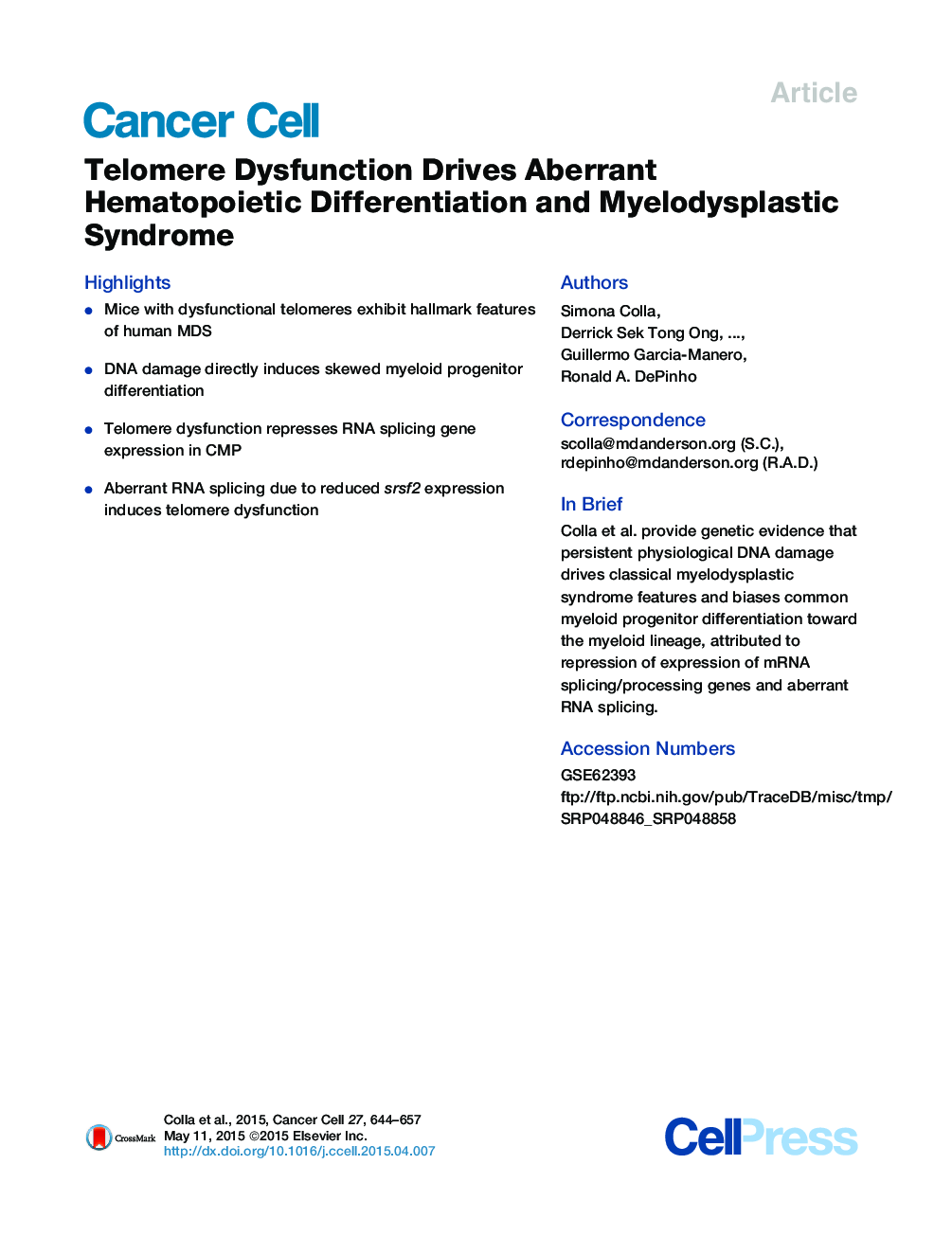| کد مقاله | کد نشریه | سال انتشار | مقاله انگلیسی | نسخه تمام متن |
|---|---|---|---|---|
| 2106967 | 1083645 | 2015 | 14 صفحه PDF | دانلود رایگان |
• Mice with dysfunctional telomeres exhibit hallmark features of human MDS
• DNA damage directly induces skewed myeloid progenitor differentiation
• Telomere dysfunction represses RNA splicing gene expression in CMP
• Aberrant RNA splicing due to reduced srsf2 expression induces telomere dysfunction
SummaryMyelodysplastic syndrome (MDS) risk correlates with advancing age, therapy-induced DNA damage, and/or shorter telomeres, but whether telomere erosion directly induces MDS is unknown. Here, we provide the genetic evidence that telomere dysfunction-induced DNA damage drives classical MDS phenotypes and alters common myeloid progenitor (CMP) differentiation by repressing the expression of mRNA splicing/processing genes, including SRSF2. RNA-seq analyses of telomere dysfunctional CMP identified aberrantly spliced transcripts linked to pathways relevant to MDS pathogenesis such as genome stability, DNA repair, chromatin remodeling, and histone modification, which are also enriched in mouse CMP haploinsufficient for SRSF2 and in CD34+ CMML patient cells harboring SRSF2 mutation. Together, our studies establish an intimate link across telomere biology, aberrant RNA splicing, and myeloid progenitor differentiation.
Journal: - Volume 27, Issue 5, 11 May 2015, Pages 644–657
